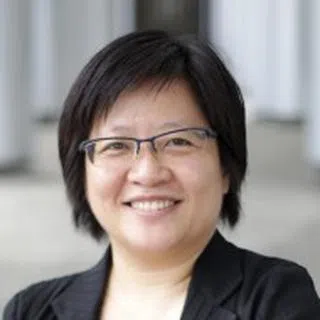How Ma Ying-jeou tested Beijing's flexibility towards Taiwan
Lianhe Zaobao associate editor Han Yong Hong notes that the visit of former Taiwan President Ma Ying-jeou to mainland China might be seeing positive results, as the mainland Chinese government seems to be favourably impressed. How will the visit influence cross-strait relations?
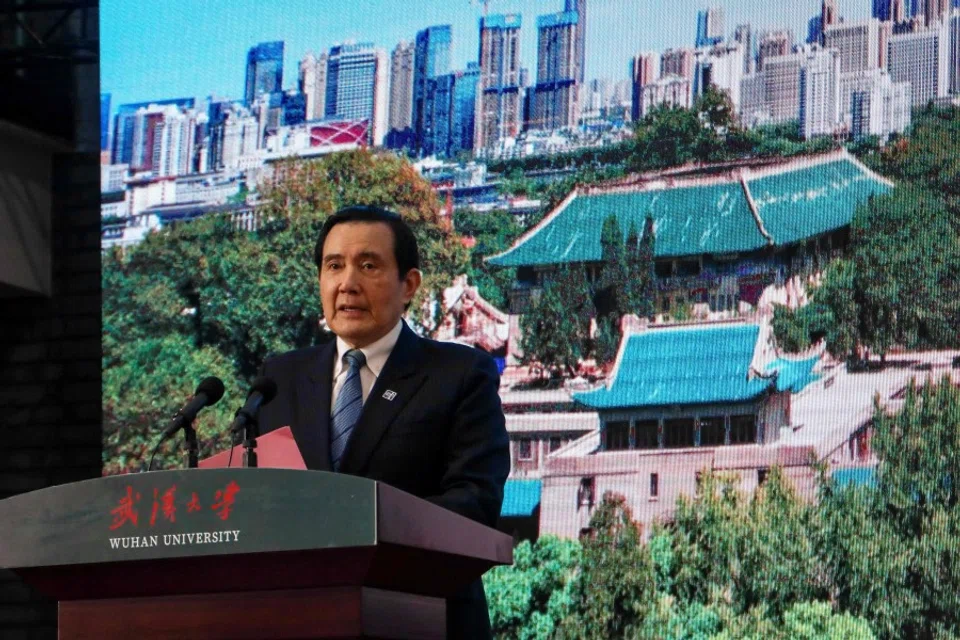
Former Taiwan President Ma Ying-jeou's "ancestral visit and exchange" trip to mainland China reached a climactic moment on 30 March. Expectations of the visit were previously not high, but with Ma's knack for highlighting positive points throughout his trip, his apparent ease in speaking, and his deft and indirect defence of the Republic of China (ROC) while showing his strong sentiment as a Chinese person (中国人), he has tested Beijing's flexibility towards Taiwan. It has revealed Beijing's unprecedented degree of tolerance for Taiwan's efforts to seek common ground while retaining differences.
... mainland China not refuting Ma's remarks about the ROC, is in fact tolerating, and allowing Ma and mainland China to create that historical moment where politicians from both sides of the Taiwan Strait are amicable on mainland Chinese soil while holding different interpretations of the "one China" principle (一中各表).
'One family'
Ma's performance has boosted the morale of Taiwan's Blue camp, who feel that Ma has shown on mainland Chinese soil that the ROC is not just history but part of the present - whether or not mainland China accepts it. The Blue camp has also challenged incumbent President Tsai Ing-wen to also refer to the "Republic of China" on her trip to the US.
However, many people might not have realised or paid attention to the fact that mainland China not refuting Ma's remarks about the ROC, is in fact tolerating, and allowing Ma and mainland China to create that historical moment where politicians from both sides of the Taiwan Strait are amicable on mainland Chinese soil while holding different interpretations of the "one China" principle (一中各表).
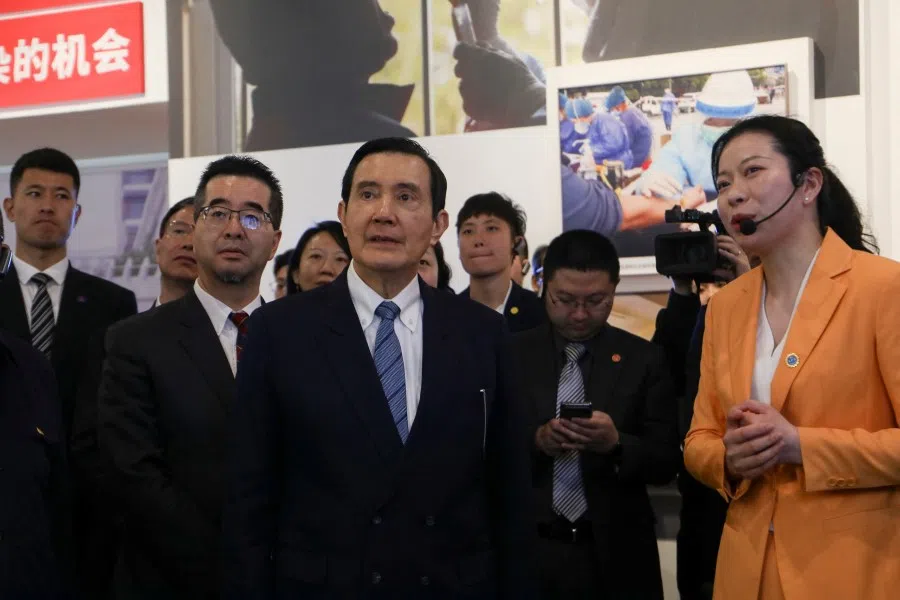
There were also concerns that Beijing - given its shift towards promoting unification - would leverage Ma's visit as an opportunity to promote unification, but this did not happen. During the highly symbolic meeting on 30 March between Ma and Song Tao, the director of the Taiwan Affairs Office (TAO), Song did not mention "reunification" (统一), but spoke in more general terms, saying that both sides will eventually have a reunion (团圆) and that "we are one family, and no one can separate us".
In response, Ma also did not use explicit terms such as "president", but did mention the "restoration of the 1992 Consensus", indirectly expressing the idea of different interpretations of the "one China" principle. All this demonstrates the mutual understanding and regard between the two sides that have had prior communications on the matter.
Small breakthroughs
The mainland China authorities only confirmed to Taiwan media on the noon of 30 March that Song and Ma would meet that night, showing that they were closely watching and evaluating Ma's performance. Eventually, Song personally met and hosted a dinner for Ma and his delegation in Wuhan. Furthermore, Song along with TAO deputy director Chen Yuanfeng will accompany Ma to Hubei and Hunan, including Ma's return to his hometown to pay respects to his ancestors. This is indeed a high-level courtesy.
Furthermore, Song conveyed Chinese Communist Party (CCP) General Secretary Xi Jinping's greetings to Ma at the outset of their meeting, and then praised Ma for his national sentiment and belief in rejuvenating China, which is "benefiting both sides of the Taiwan Strait and serving the nation" - that is Xi's position.
Ma's clear recognition of historical and ethnic identity brought forth a small breakthrough in the way Beijing handles cross-strait communication, as evidenced by Beijing's rare tolerance of the expression "Republic of China".
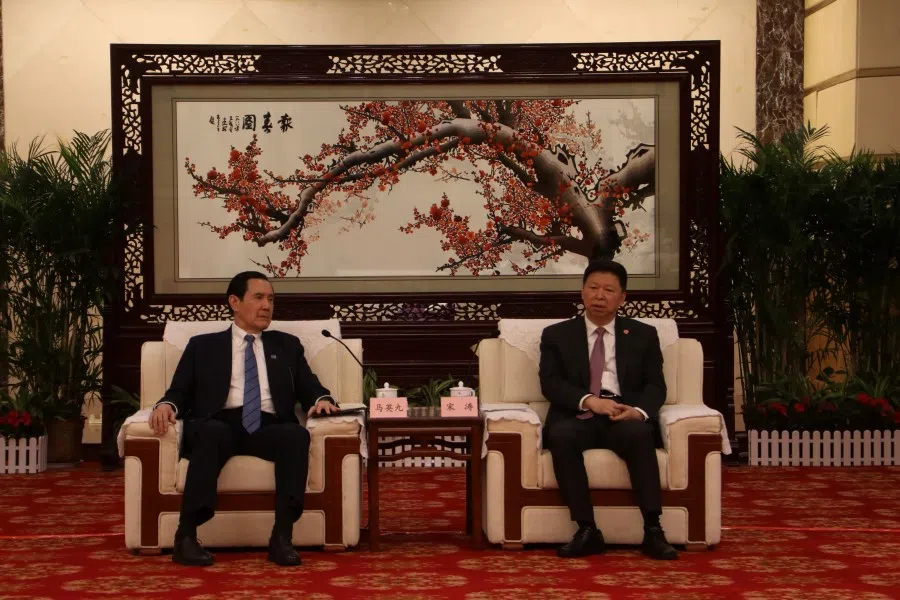
It is a clear signal that the top leadership in mainland China recognises what Ma has said and done over the past few days. This includes Ma's mention of the ROC and referring to himself as the "former president" in Nanjing, as well as the use of the Republican calendar. These statements are completely contrary to mainland China's position that the ROC ended in 1949 (all of China's diplomatic allies only recognise the People's Republic of China). However, Song's recognition of Ma shows that mainland China was mentally prepared for Ma's comments, and even had a tacit understanding.
The concepts "people on both sides of the Taiwan Strait are Chinese people" and "peaceful struggle and revitalisation of Zhonghua" that Ma put forth during his visit at the Memorial Hall of the Victims in Nanjing Massacre by Japanese Invaders are also believed to have struck a strong chord with Beijing's higher-ups. Ma's clear recognition of historical and ethnic identity brought forth a small breakthrough in the way Beijing handles cross-strait communication, as evidenced by Beijing's rare tolerance of the expression "Republic of China".
During Ma's visit to mainland China, the clearest demonstration that both sides of the Taiwan Strait attach different meanings to "one China" occurred on 28 March when Ma met with Jiangsu CCP Secretary Xin Changxing.
Ma, who carries a large folder to every meeting of the trip to show that he is reading from a script, had said the words "when I was president of Taiwan" during his meeting with Xin. Based on the live feed, Ma had made a brief pause when he mentioned "Taiwan" and "president", which implied that it was a conscious decision to add his former position as "Taiwan president" into the dialogue.
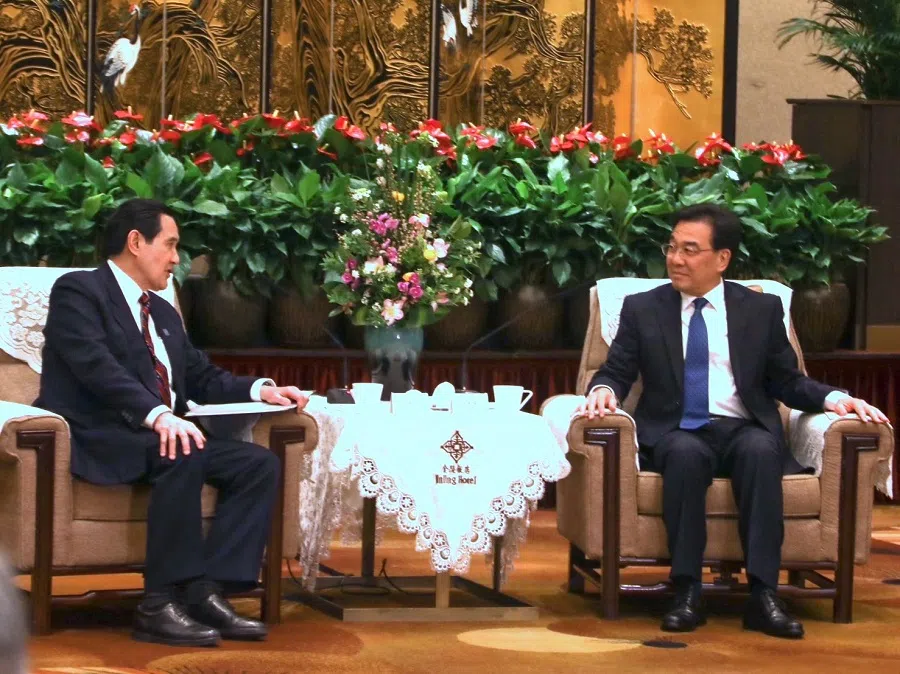
When it came to Xin's turn to speak after Ma finished his speech, Xin began with some brief greetings and then said that whether Ma was serving as "the former chair of the Chinese Kuomintang or the former leader of the Taiwan region", he has adhered to the 1992 Consensus and the "one China" principle, and opposes Taiwan independence.
The same designation was expressed differently by two people. Some Taiwanese media believe that Xin had intentionally addressed Ma as "the former leader of the Taiwan region" to hit back at him and reject his claims. But upon deeper thought, Xin did not interrupt Ma but allowed him to finish his speech. The atmosphere of the dialogue also remained cordial thereafter. If this is not a concrete expression of both sides of the Taiwan Strait attaching different meanings to "one China", what is it?
External challenges
The reason why Ma's trip to the mainland had been so productive is in part due to the mutual trust and rapport that was formed after Xi and Ma met in Singapore in 2015. More importantly, it is due to Beijing's severe external challenges and the intensifying confrontation between China and the US.
Currently, China's strategic goal is still to create a peaceful environment to drive economic development, and its Taiwan strategy remains to maintain stability in the Taiwan Strait. It does not want to have a showdown with the US over Taiwan or to be "baited into war" by the US, contrary to some Western commentaries alleging that the mainland plans to take Taiwan by force by 2027 or earlier.
Only one-third into his trip, Ma is trying hard to use the concept of "Chinese people" to create the greatest common denominator across the Taiwan Strait, hoping to pursue peace for both sides in this manner.
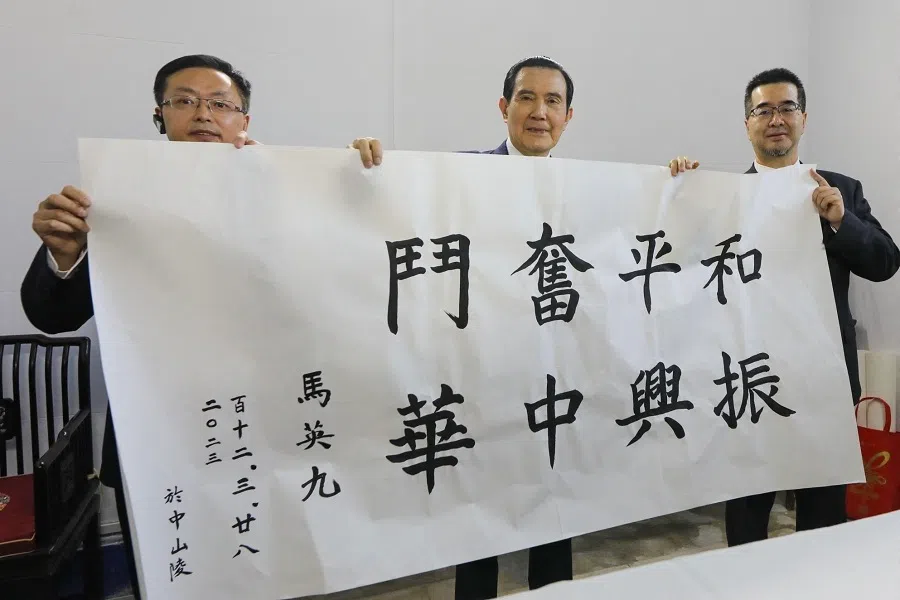
Speaking with my colleagues from the mainland about Ma's visit, I am touched that he used the phrases "people on both sides of the Taiwan Strait are Chinese people" and "peaceful struggle and revitalisation of Zhonghua", which are filled with ethnic sentiment to connect people on both sides of the Taiwan Strait.
Only one-third into his trip, Ma is trying hard to use the concept of "Chinese people" to create the greatest common denominator across the Taiwan Strait, hoping to pursue peace for both sides in this manner. If this works, will a "one China, two systems" model emerge across the Taiwan Strait someday to help the descendants of the Yan and Yellow Emperors solve the cross-strait issue?
As long as there is a firm determination to maintain peace and to face history and reality seriously, there will always be creative and wise ways to solve the cross-strait issue. However, it remains uncertain if Taiwan's Blue camp would win the 2024 presidential election. If they are unable to win the votes of the people and return to power, many such discussions would be moot.
This article was first published in Lianhe Zaobao as "台湾海峡两岸"一中各表"进行时".
Related: All the subtleties: Former Taiwan President Ma Ying-jeou's words and actions in China | Chasing Ma Ying-jeou with the Chinese in Nanjing | Political significance of former Taiwan President Ma Ying-jeou's China visit | Will former Taiwan President Ma Ying-jeou's China visit win support for the KMT? | The US is just as wary of Taiwan as of China
